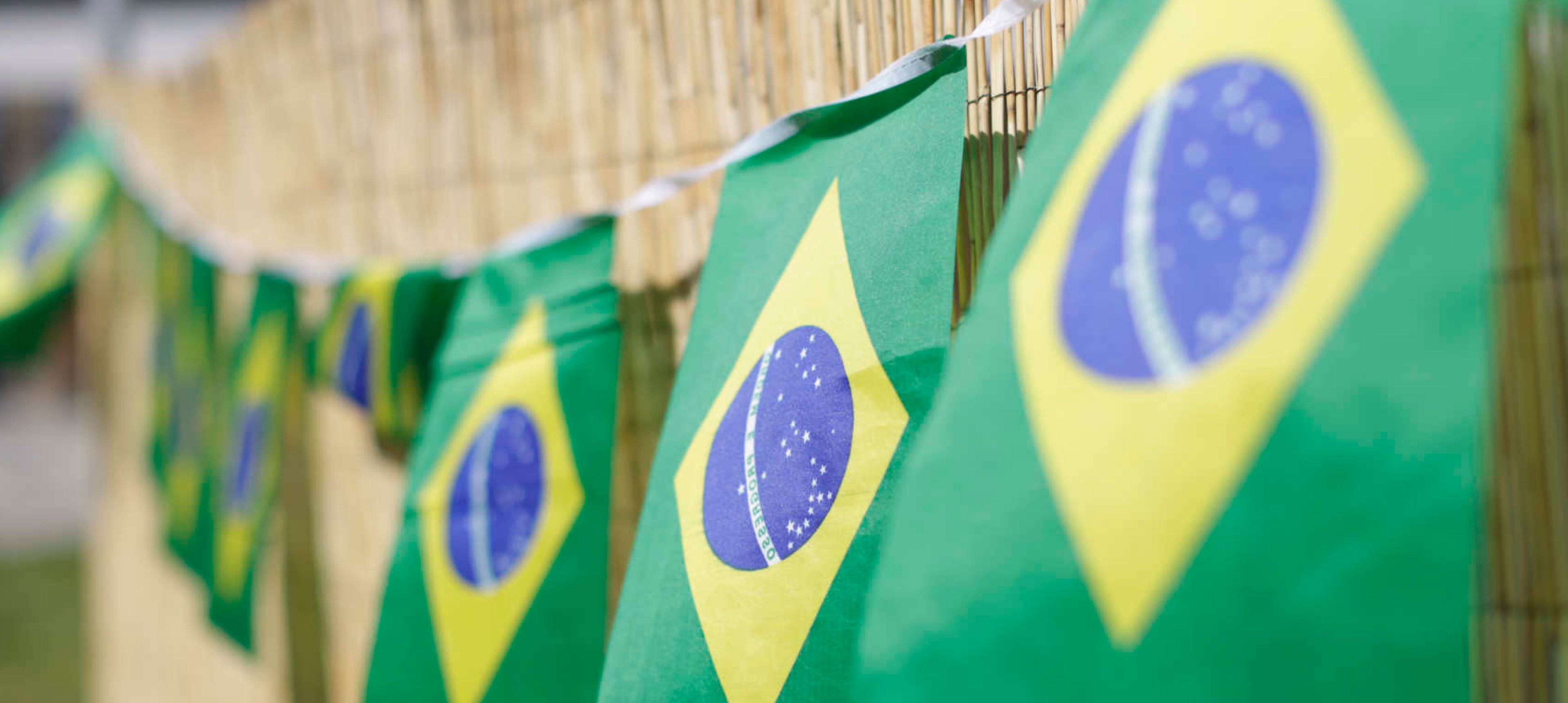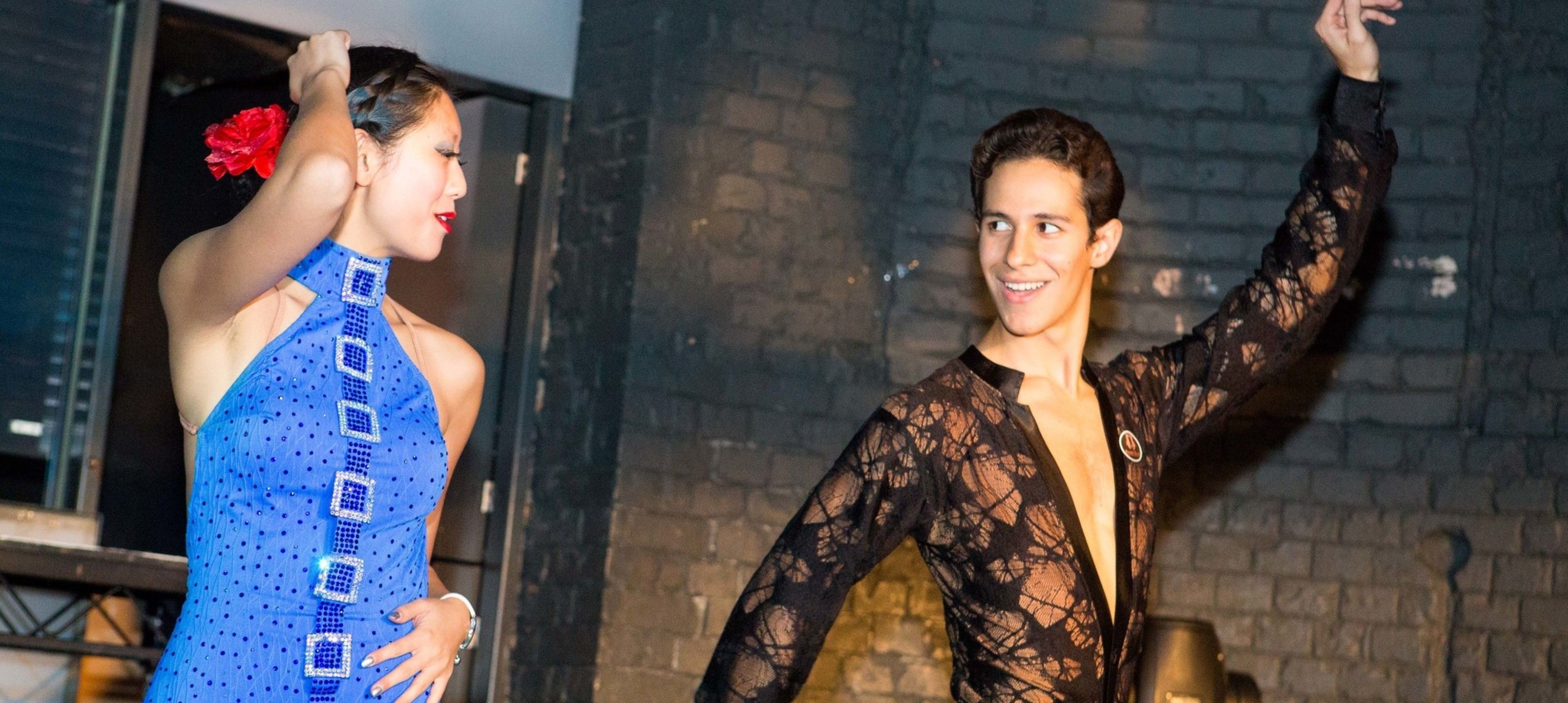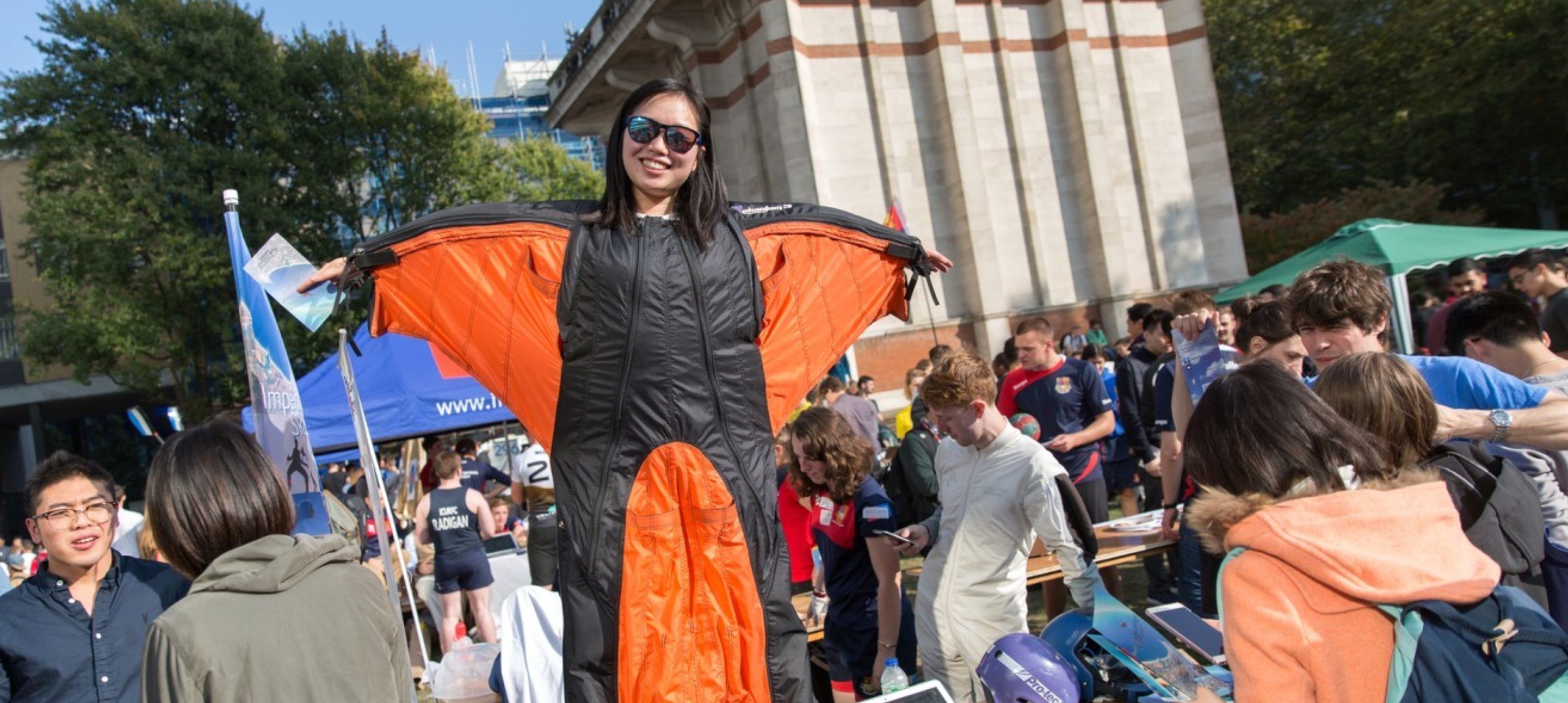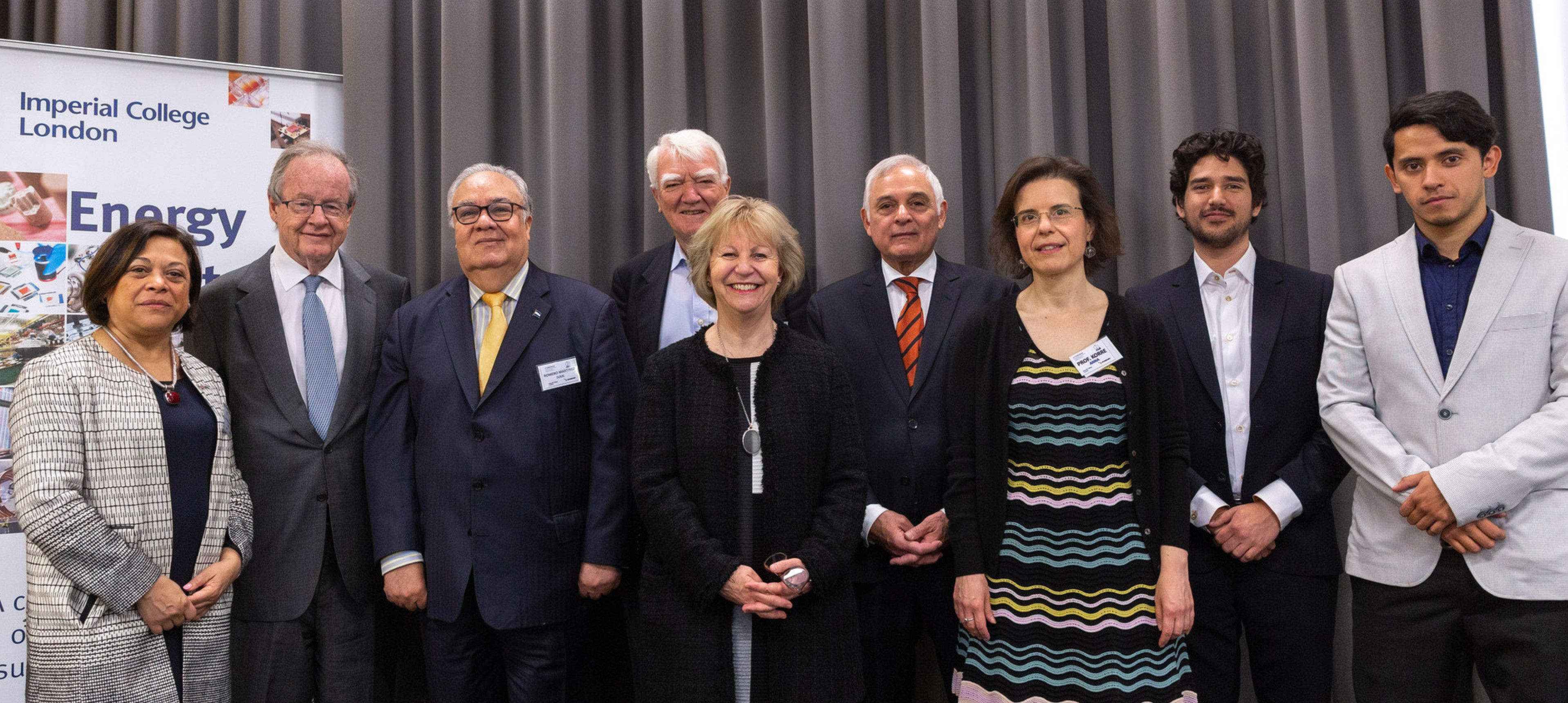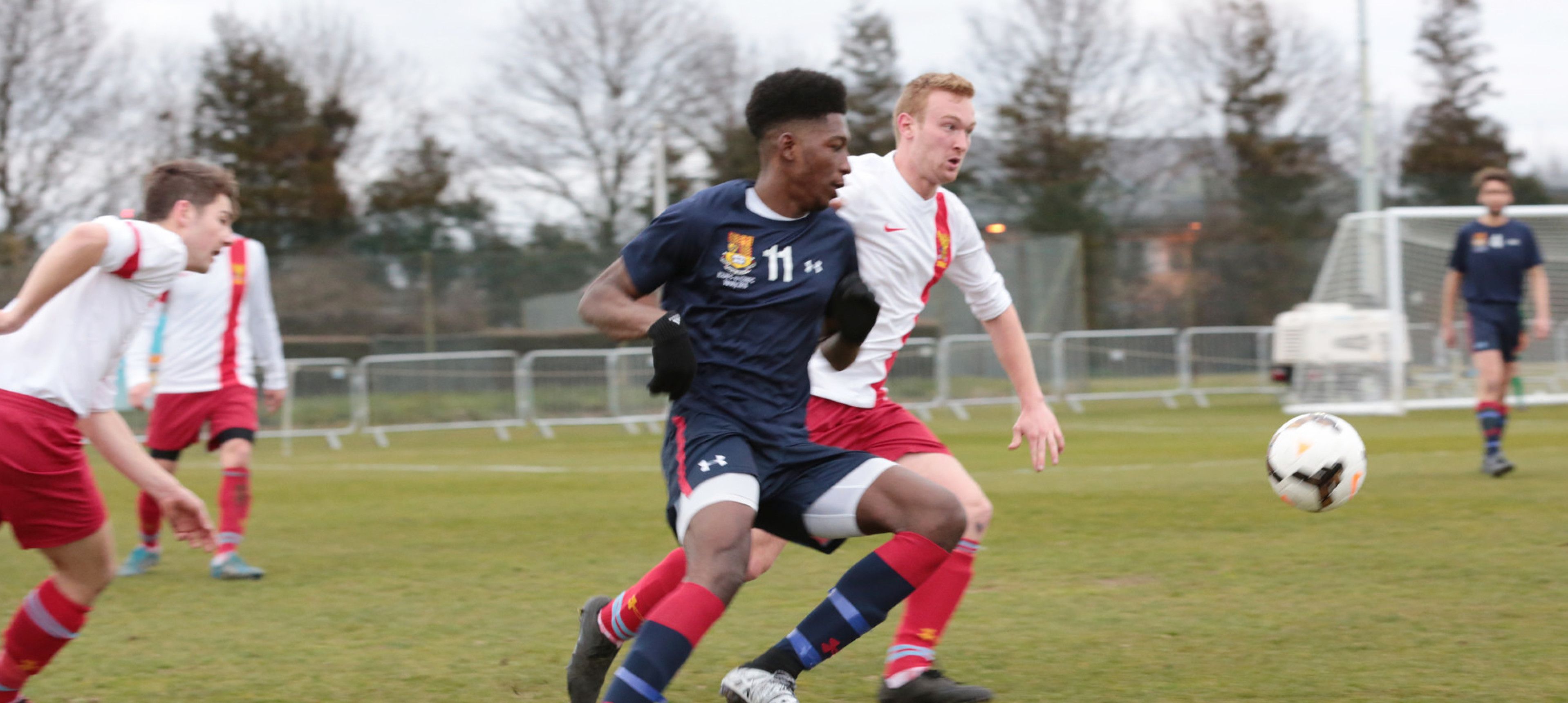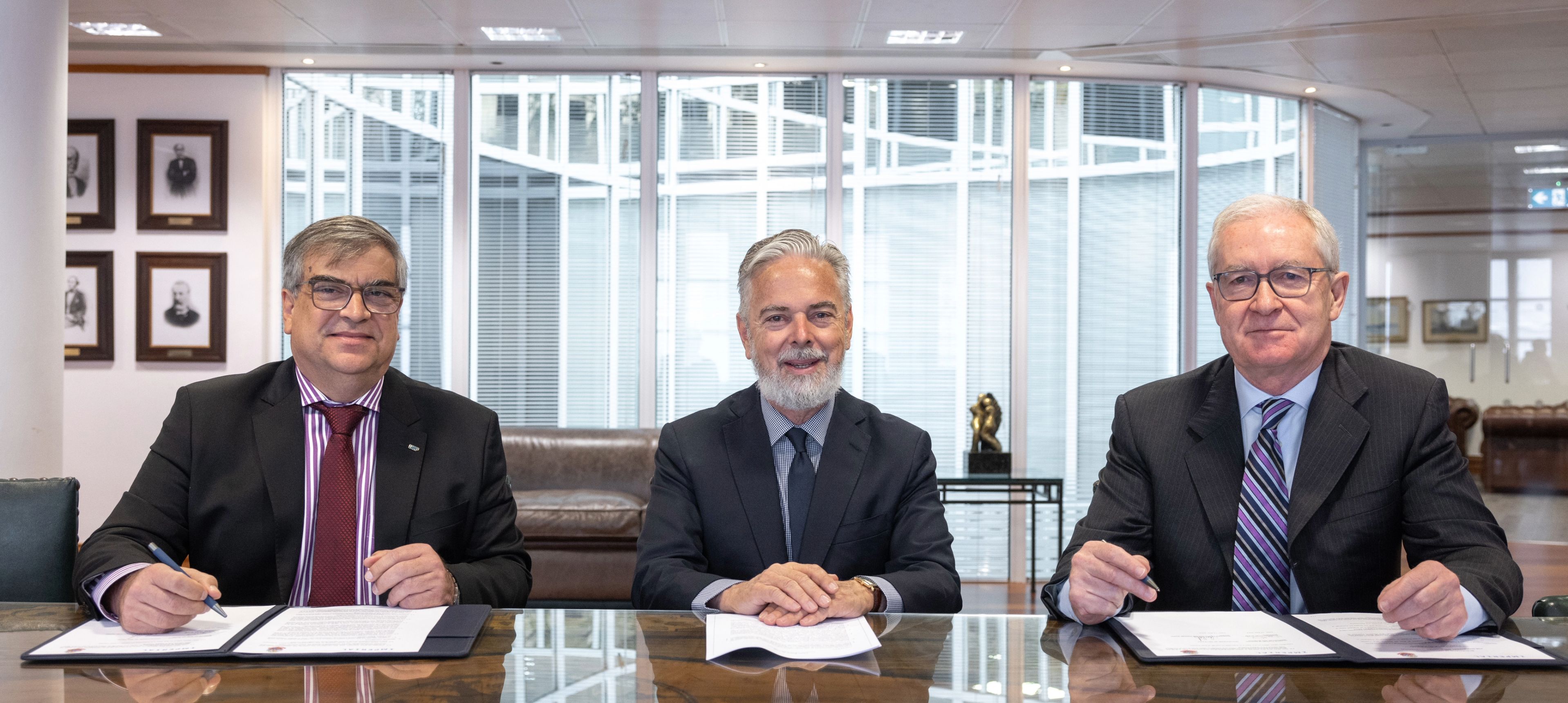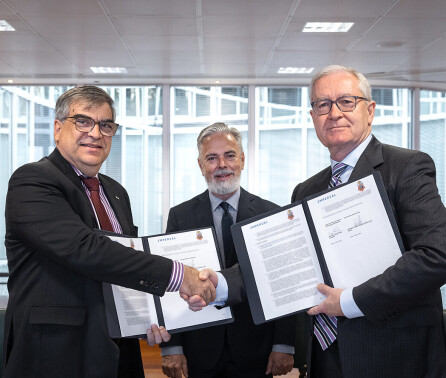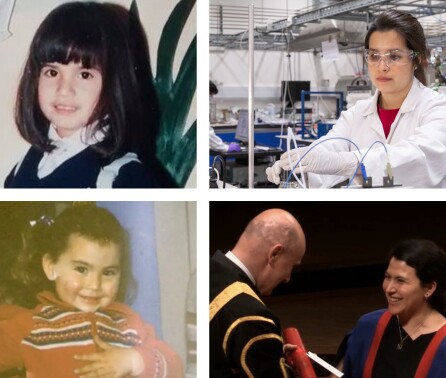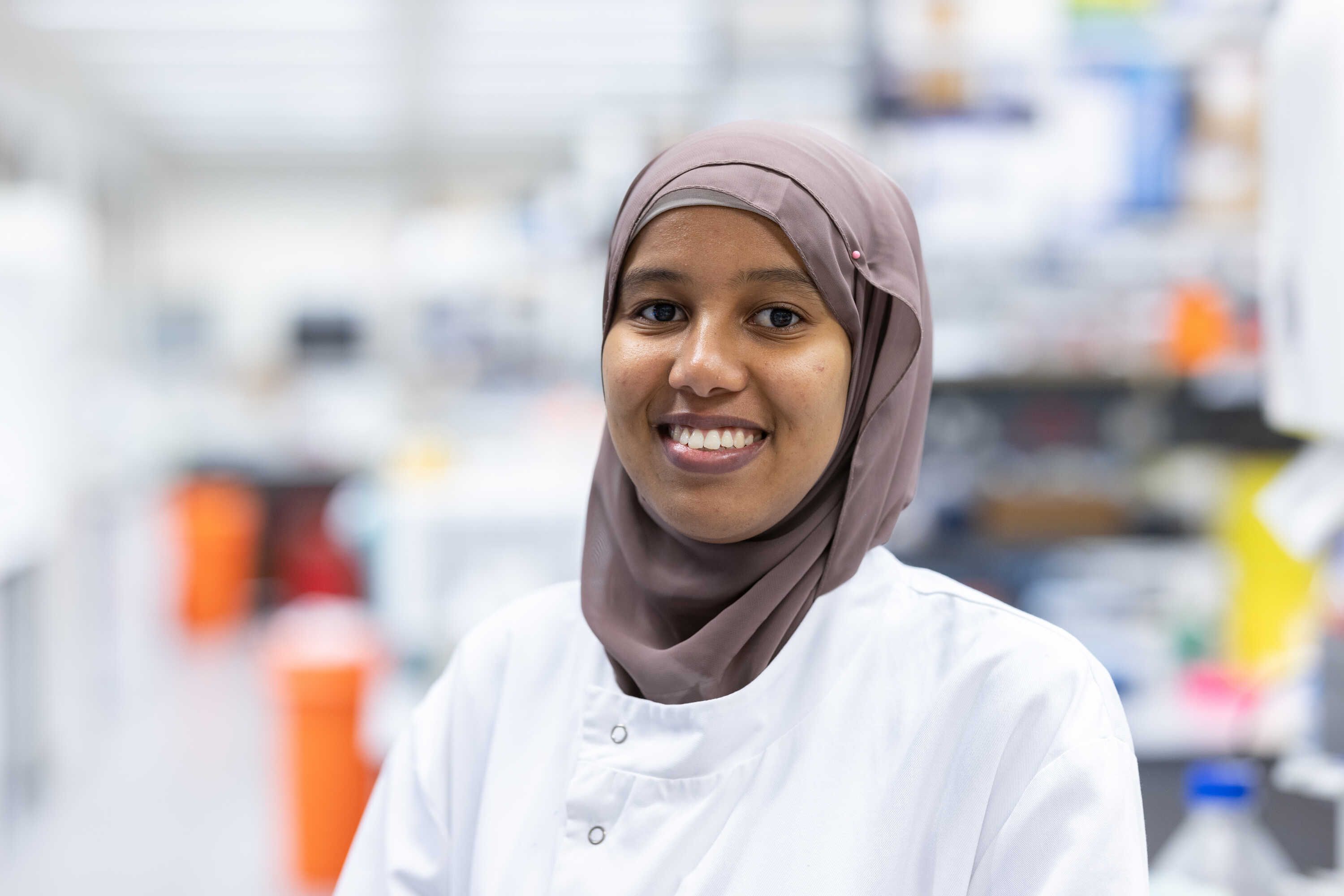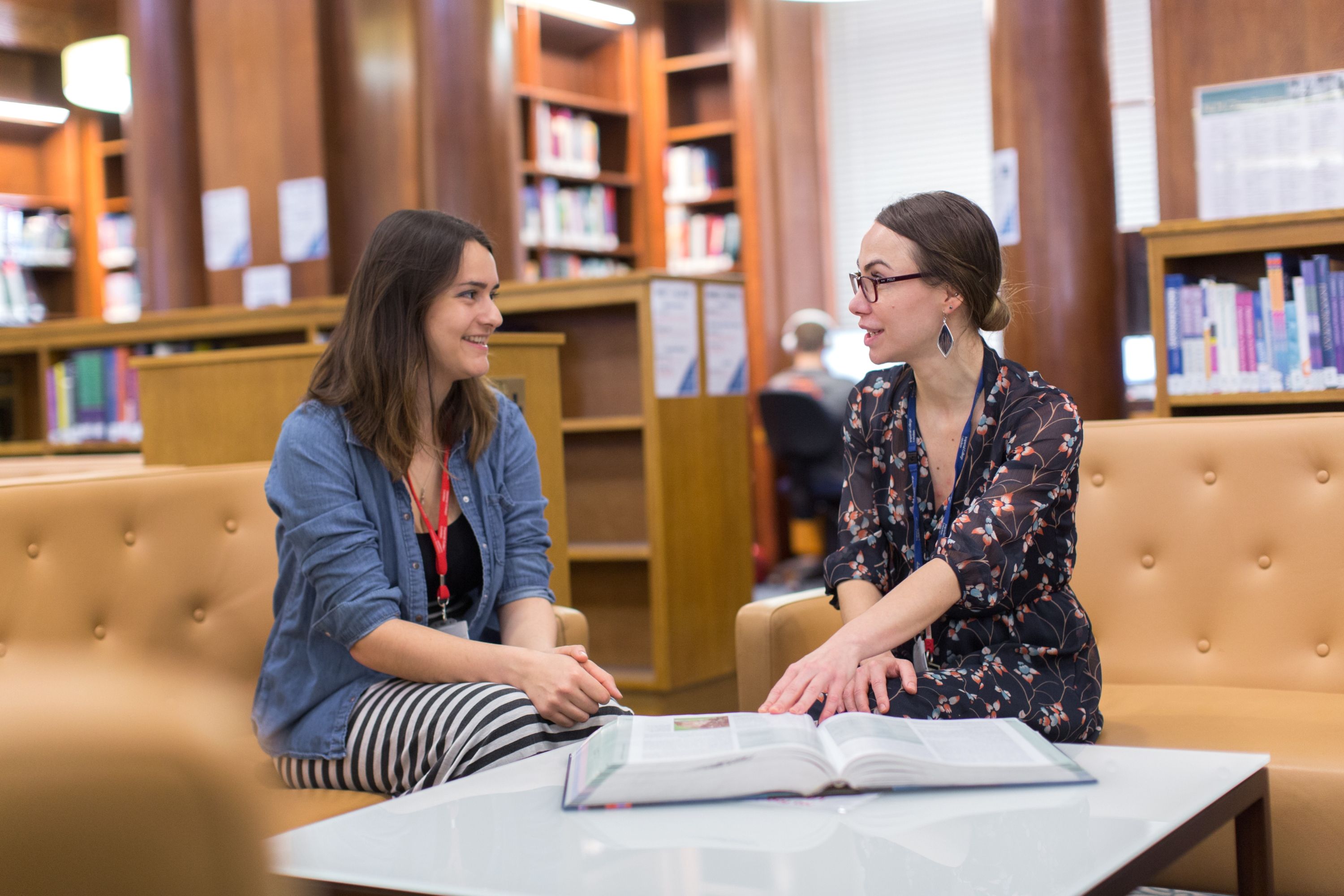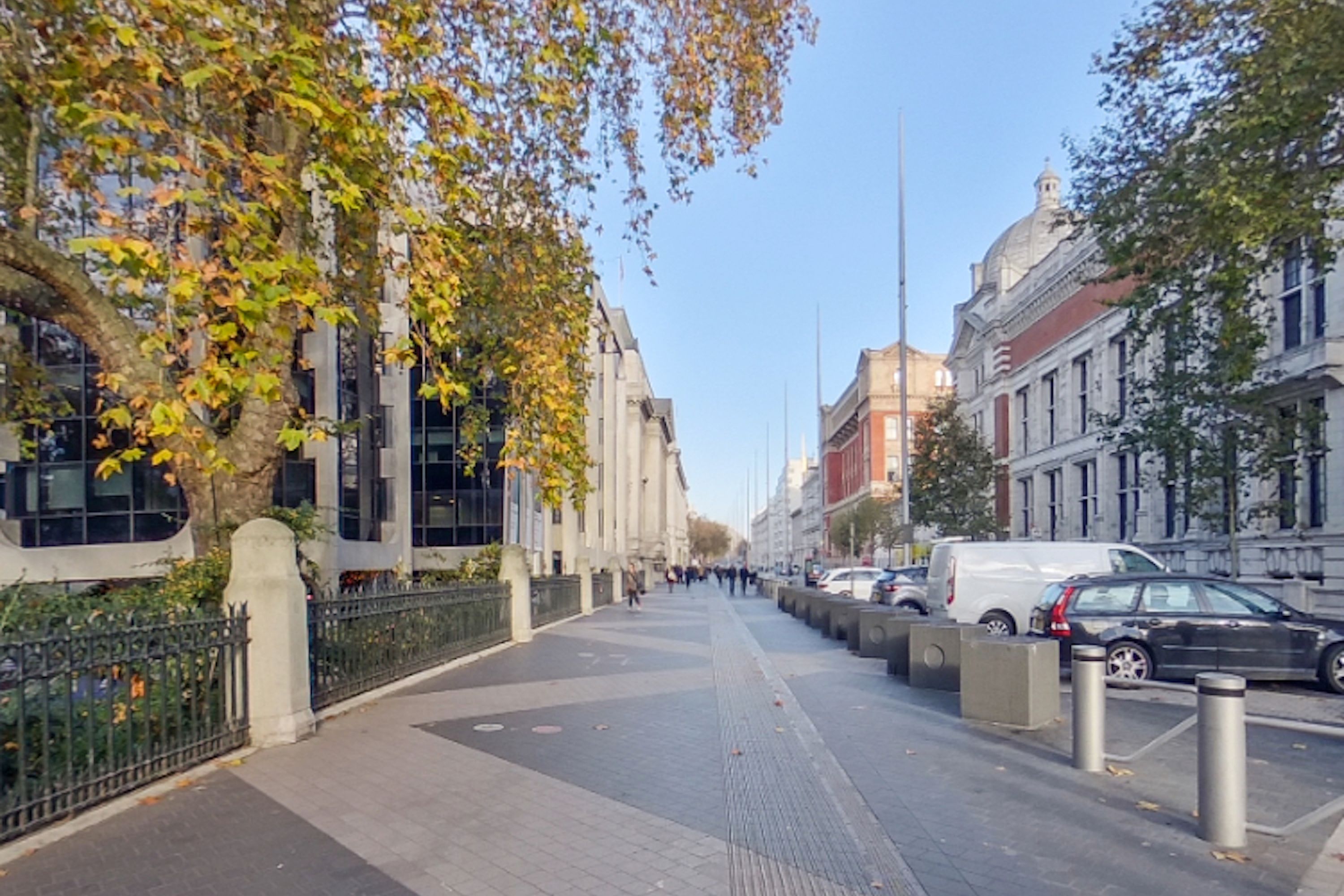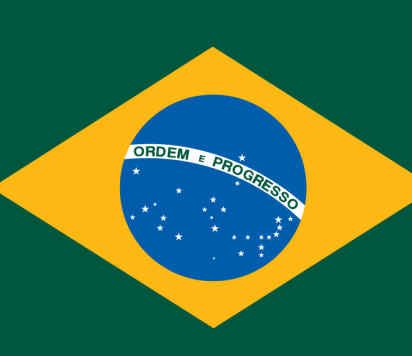Information for students from Central and South America
- Imperial & Central/South America
- How to apply (undergraduate)
- How to apply (postgraduate)
- Scholarships and loans
- Student activities
- Life after Imperial
"Coming from a developing country, studying abroad is not particularly easy to reach. Having the opportunity to study with this scholarship at one of the highest ranked universities in the world has completely changed my life. My research is now linked to a broader global project on poverty alleviation, which would have been unimaginable a couple of years ago."
Boris Fernando Ochoa-Toachi (Ecuador)
Imperial College PhD scholar, PhD Civil Engineering
Many Imperial departments have long-standing active collaborations with Central and South America, in areas ranging from engineering, aeronautics, geosciences and mining to energy and climate change, land use, biodiversity and ecosystems, as well as public health.
Central and South American nations currently represented amongst our student community include Brazil, Chile, Colombia, Ecuador, Mexico and Peru.
You can find out more about our connections with Central and South America on our Global Imperial website.
An undergraduate degree at Imperial normally lasts three years for a Bachelor’s level qualification or four years for an integrated Master’s.
Some departments offer a year abroad or a year in industry which can add to the overall length of your degree.
Applying via UCAS
To apply for a full-time undergraduate programme at Imperial, you must make an online application via the Universities and Colleges Admissions Service – UCAS. The UCAS code for Imperial College London is I50.
UCAS allows you to apply to a maximum of five courses in one cycle. Find step-by-step instructions on how to apply; you can also visit the UCAS website for more in-depth advice.
If we want to offer you a place, but you have not yet taken your final school exams, then we would usually make you a 'conditional offer'. This means we will guarantee you a place at Imperial subject to you satisfying the conditions of your offer, such as achieving certain scores in your final qualifications and gaining an ATAS certificate for certain courses.
You can submit your results after you have applied; this is usual practice in the UK and is the reason why you must let us know which qualifications you are taking on your UCAS application.
Academic entry requirements
Exact entry requirements vary by course - see the entry requirements section on our our course pages for details on the range of international qualifications we accept.
If your school qualification is not on the list of accepted qualifications, you may be considered by taking an accepted Foundation programme, or an accepted qualification at an external provider - see our course pages for details.
English language requirements
All applicants should also achieve the required level of English language and provide evidence of a valid English language qualification to qualify for a place.
There are two levels of English language requirement at Imperial:
- Standard
- Higher
See the English language requirement on the relevant course page to see whether your chosen course requires the standard or higher level. Find out more about the English language requirements for each level.
You do not need to have reached the required level before you apply. We can assess your academic profile without your English language qualification. Should we decide to make an offer, we would give you a target grade to meet as part of your offer.
If you have studied one of our recognised English language exams as part of your High School studies (e.g. IGCSE English, IB English etc.), you may be exempt from the need to provide additional evidence of your English language ability. Check our English language requirement page for full details.
English language proficiency tests should have been obtained within two years of the start date of your chosen course.
A Master's degree at Imperial normally lasts one year, though we do offer some degrees which you can take part-time over two years and PG Certificate and PG Diploma qualifications which vary in length.
A PhD with us will usually take 3–4 years of full-time study to complete.
How to apply
To apply for a Master's or Doctoral course, you need to submit an application via our online application system.
Find out more about how to apply for postgraduate taught or postgraduate doctoral study.
Academic entry requirements
Exact entry requirements vary per course, but to be considered for admission to a Master's e.g. MSc, MRes, MBA etc, you should hold a Bachelor's degree.
To check if your international qualification meets the College minimum requirement, please see our accepted qualifications.
Departments may also often set higher level requirements, due to the demanding and competitive nature of our courses.
For the vast majority of our degrees, we do not require additional testing such as the GRE or GMAT. If we do require any additional testing it will be clearly stated on the course page.
If you're applying for a Doctoral degree, you should hold a Master's degree – the grades you require will be specified by the Department you're applying to. In addition, you'll need to hold a Bachelor's degree passed at the prescribed level.
If we want to make you an offer, but you have not yet graduated, then we would usually make you a conditional offer subject to you achieving a certain grade or score. This means your place at Imperial is guaranteed providing you meet the conditions of your offer.
You can submit your overall average after you have made your application, which is normal practice in the UK.
English language requirements
Successful applicants will need to achieve a certain level of English to qualify for a place on their chosen course.
Each course specifies either a Standard or Higher language requirement, which is the level of English required for entry on to that particular course, even if English is your first language.
Full details can be found on the relevant course page and English language requirement page.
Re-applying
If you have previously applied to Imperial and were unsuccessful, you will need to submit a new application.
If you have successfully requested deferred entry, you do not need to complete a new application.
You can search all of our scholarships in one place.
Examples of funding for students from Central and South America include:
Master's students
Research students
Isabela's first week at Imperial College London
If life at Imperial was all labs and lectures, we wouldn’t have around 350 clubs and societies to get involved with, and state-of-the-art sports facilities right on campus.
We have clubs and societies covering arts and entertainment, charitable endeavours, culture, departmental and academic-related societies, societies related to faith, media societies (two student newspapers, student radio and TV stations and a photography society) and over 100 sports clubs, including martial arts and indoor and outdoor sports.
All of our societies are open to all students but here are some you may find of particular interest:
Virtual tour
To get a feel for life on our South Kensington Campus, take a virtual tour.
Your relationship with Imperial does not end when you graduate. Some of our international alumni stay in the UK, utilising the Graduate Worker Route which enables graduates to work in the UK for two years after completing an undergraduate or postgraduate Masters degree, or three years after completing a PhD.
Others move abroad again, and as an Imperial alumnus you will join a community of over 190,000 former students in 200 countries.
We have alumni groups worldwide and you can join our online platform Imperial Plexus to help you build links with other former students.
Hear from an Imperial student
Hear from Jose Cuadros Adriazola, a Civil and Environmental Engineering student from Peru.
Joining an international university was a top priority for Jose. The diverse make-up of the faculty, students and course topics meant he was not disappointed at Imperial. The Master’s in Hydrology and Water Resource Management has given Jose the opportunity to understand complex theories, travel around the world and apply what he has learned to real life situations.
Hear from an Imperial student
Hear from Herman, an Electrical and Electronic Engineering student from Ecuador.
Herman studied the MSc in Communications and Signal Processing and shares how he first discovered the subject, motivations for studying the course and how he approached his project work. Communications and Signal Processing helps to develop an in-depth knowledge of modern information engineering problems and their solutions.
Opportunities to meet us
Central and South America recruitment events
Showing results for:
Got a question?
The Imperial representative for Central and South America is Catherine Eames, International Student Recruitment Manager. Please use the link to the enquiry form below to get in touch.
International recruitment team
Ask me a question
/prod01/channel_3/media/migration/study/eames-cathreine-tojpeg-1541071024769-x2_1606737798663_x4.jpg)
Ask me a question
